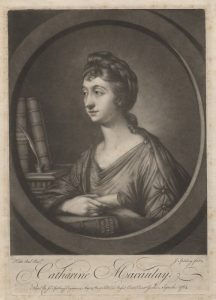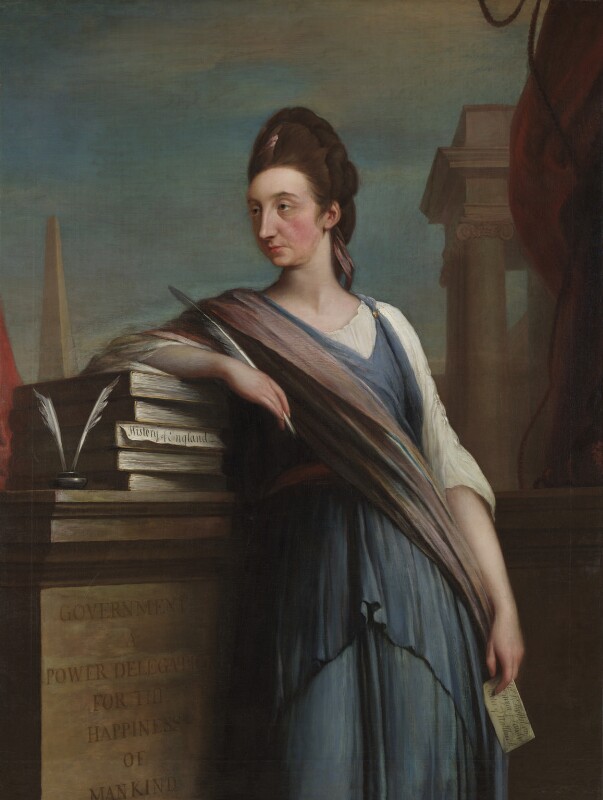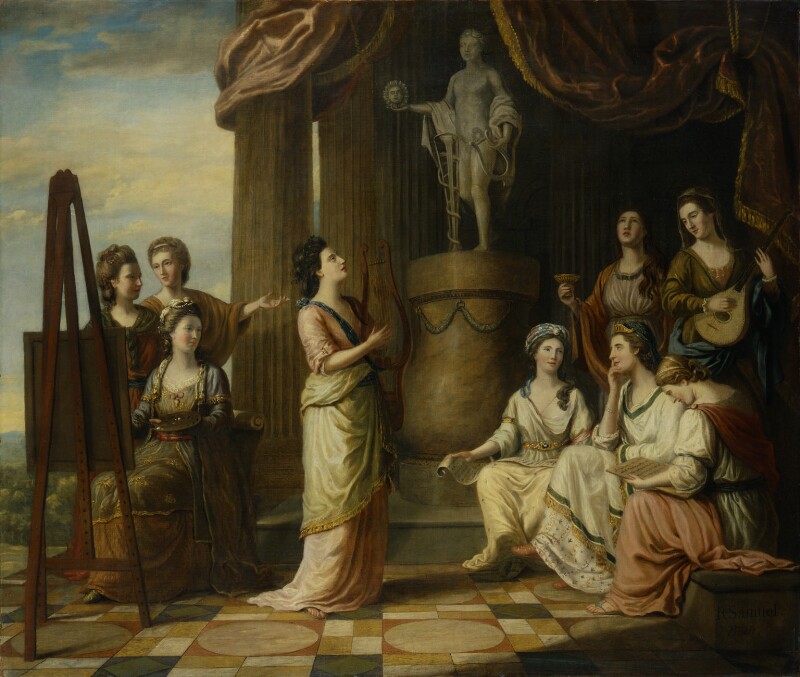
Yes, I did say I was done with family ties! But then along came Catherine Macaulay in an LRB piece by Colin Kidd (Vol. 45 No. 17 · 7 September 2023). No, she is not related to Lord Macaulay who is the great-uncle of G. M(acaulay). Trevelyan. What all did have in common, though, were their ambitious writing down of the ‘big’ histories of a (then) ‘big’ England. And this Catharine did so well before those blokes – in a multi-volume affair written over twenty years titled The History of England from the Accession of James I to the Revolution (1763-1783). (Only much later came Lord (Th. Babington) Macaulay also making it to five volumes with his The History of England from the Accession of James the Second (1848) and Trevelyan, of course writing in the first half of the 20th century, had diverse titles to his credit but could also not resist a History of England in 1928, and in one tome.)
Kidd’s review of Catharine Macaulay: Political Writings edited by Max Skjönsberg for the Cambridge University Press series of Texts in the History of Political Thought comes for me as a wonderful introduction. Encouraged to look around, I discern some sense of renewed interest in Macaulay, and it is hardly surprising; for, however well-situated, however intelligent, the horizon for a woman in the 18th century was far and her opportunities limited in scope and only those with the most pertinacious of character and originality of thought have left their mark.


For further information, the Stanford Encyclopedia of Philosophy has a lengthy entry, which interestingly mentions the “Blue Stockings” portrait (above r.) in which Catharine Macaulay is seated left beneath Apollo and behind her stands, with goblet in hand, Hannah More whose acquaintanceship and name was to live on (via Zachary) in that other Macaulay/Trevelyan tribe. Further, a first taste of her original voice can be read at the Online Library of Liberty (new to me!) in a text written in 1790 (in response to Edmund Burke) on republicanism and the Revolution in France.
